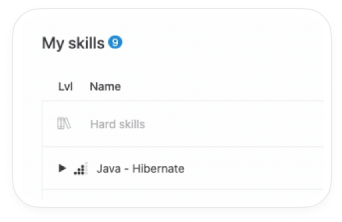Addressing skills shortages in the heating industry: strategies and solutions
The World Economic Forum’s “Future of Jobs Report 2020” highlights that more than 40% of crucial skills valued by employers are expected to change by 2025. Meanwhile, the McKinsey Global Institute predicts that around 375 million workers worldwide may need to acquire new skills or change occupations by 2030 due to automation and technological advancements. Moreover, the Academy to Innovate HR (AIHR) claims that 79% of HR professionals lack the skills to address future workforce challenges.
These statistics demonstrate the widespread impact of skills shortages across industries. Recently, the heating industry has experienced a surge in demand for skilled workers, particularly in installing heat pumps as part of the transition to sustainable heating systems. However, despite claims that installing heat pumps is simple enough, there remains a shortage of qualified specialists.
What’s the current situation with the heating industry in the EU countries?
In Germany, the Zentralverband Sanitär Heizung Klima (Central Association of Sanitation, Heating, and Air Conditioning) has reported a shortage of skilled heating installers for both the installation of new heating systems and the modernization of existing ones. German plumbing and heating companies renovate approximately 900,000 heating systems and 1.2 million bathrooms annually. However, the Federal Statistical Office indicates a decrease of over 9% in the number of sanitation and heating construction sector employees over the past decade. Although the need for additional training may not be as dramatic as initially assumed, according to the Zentralverband Sanitär Heizung Klima, there is still a need to ensure skilled workers possess the necessary knowledge and have access to training opportunities.
The political debate surrounding heating system replacement continues in the EU countries in 2023, with concerns raised by some politicians regarding the ban on specific heating systems and its impact on viable alternatives, skilled workforce availability, electricity, and necessary technology for implementing the ban. However, the CEO of Vaillant, a heat pump manufacturer, believes that heat pumps can be installed in up to 70% of European buildings without significant renovations, with additional measures required for the remaining buildings, such as replacing radiators or improving building insulation.
Decarbonizing heat remains a critical obstacle in achieving net-zero emissions in the UK, given that the heating sector alone contributes approximately 17% of carbon emissions, with residential homes accounting for around 13-14% (about 86%) of that total.
Heat pumps are expected to play a crucial role in decarbonizing heat, as emphasized by the UK government’s target of 600,000 heat pump installations per year by 2028. However, several challenges, including skills shortages, pose potential threats to achieving this target. According to research commissioned by Energy Efficiency at City Plumbing, and conducted by Censuswide, 44% of installers need help finding training, and only 27% find it easy to locate courses nearby. Additionally, only 18% of installers currently work with heat pumps, and only 6% possess Microgeneration Certification Schemes (MCS). Moreover, 32% of installers in the UK are unaware of the government’s Boiler Upgrade Scheme, and just 45% feel confident enough to explain the benefits of heat pumps to customers.
Adam Foy, Managing Director of Energy Efficiency at City Plumbing, emphasizes the need to make training more accessible for installers interested in upskilling. He notes that achieving government targets is impossible without trained installers, as demonstrated by the significant percentage of installers willing to become MCS certified if local courses were available. A majority of installers (82%) agree that certification would be beneficial for their careers.
Detect and understand the future skills relevant to your industry
Enhance your strategic workforce planning with our essential skills gap analysis tool. Identify areas where individuals and teams lack qualifications or skills, enabling you to design targeted training programs and upskill your workforce. Access our complimentary and customizable skills gap analysis template now.
Shortage of skilled workers in the heating industry
In recent years, the heating industry has faced a shortage of skilled workers in various areas, including installing, maintaining, and repairing heating systems. This shortage is expected to persist in the coming years due to the increasing demand for heating systems and renewable energy technologies. To better understand the magnitude of this issue, let’s explore the specific skills in high demand within the heating industry.
- Knowledge of renewable energy technologies. With the increasing focus on sustainability and reducing carbon emissions, demand for renewable energy technologies such as heat pumps, solar heating, and biomass boilers is growing. Skilled workers with experience and knowledge of these technologies will be in high demand.
- Diagnostic and troubleshooting skills. Heating systems can be complex, and diagnosing and fixing problems requires specialized knowledge and skills. Workers skilled in diagnosing and troubleshooting issues with heating systems will be in high demand.
- Electrical and plumbing skills. Heating systems often involve electrical and plumbing components, and workers with experience and training in these areas will be in high demand.
Overall, the shortage of skilled workers in the heating industry is a challenge that should be addressed in the coming years. For example, employers may need to offer more competitive wages and benefits to attract and retain skilled workers, and training programs may need to be expanded to ensure a sufficient supply of workers with the necessary skills.
HR professionals are willing to upskill but may need guidance on the right learning journey.
Upgrading skills in every industry is essential for several reasons
- Keeping up with technological advancements: Industries are constantly evolving due to technological advancements. By upgrading skills, professionals can stay up to date with the latest tools, software, and processes relevant to their industry. This ensures they remain competitive and can effectively contribute to their organizations.
- Increasing efficiency and productivity: Acquiring new skills often leads to improved efficiency and productivity. With updated knowledge and techniques, professionals can find innovative solutions, streamline processes, and optimize workflows, resulting in better outcomes and higher performance.
- Adapting to changing market demands: Market demands can shift rapidly due to consumer preferences, industry trends, and economic conditions. By upgrading skills, professionals can align themselves with changing market demands and take advantage of emerging opportunities. This flexibility helps individuals and organizations adapt to new challenges and stay relevant in the industry.
- Enhancing career opportunities: Upgrading skills can significantly enhance career prospects. Employers value individuals who demonstrate a willingness to learn and adapt. By staying updated and acquiring new skills, professionals can position themselves for better job prospects, promotions, and career advancement opportunities.
- Addressing skills gaps and shortages: The shortage of skilled workers in the heating industry poses a significant challenge that needs to be addressed promptly. Employers may need to offer competitive wages and benefits to attract and retain skilled workers. Furthermore, expanding training programs will ensure an adequate supply of workers with the necessary skills. HR professionals are vital in upskilling the existing workforce but may require guidance on the most effective learning journey.
How can heating companies tackle skills shortages?
Currently, there are approximately 3,000 skilled heat pump engineers in the UK. However, an additional 27,000 engineers will be required within the next six years to meet the government’s rollout target. This requires an annual increase of 4,000 to 6,000 engineers — surpassing the total size of the industry’s current workforce.
Skills management helps organizations facilitate practical skills transformation by aligning their business strategy with insights on future job roles and industry-relevant skills. Some main goals of these HR technologies are:
- Uncovering current skills and identifying skills gaps in the workforce architecture
- Addressing skills gaps through targeted upskilling
Encouraging employee engagement through transparent career opportunities and flexible career progression - Facilitating HR and business operations with HR analytics and workforce planning.
Let’s explore some real-world examples of companies that have successfully tackled skills shortages through strategic talent management and HR technologies.
Personalized learning experience through AI
A1, a leading Austrian telecommunications company, implemented personalized learning experiences through AI to enhance its workforce planning strategy. As a result, the HR team identified talent with the right skills, ensuring early preparation for future demands. By empowering team members with efficient technology and AI tools, A1 fostered employee development and career growth, gaining valuable insights into the future workforce orientation, assessing organizational readiness, and establishing the foundation for an agile and connected workforce.
AI-driven learning journeys for employee development
Deutsche Telekom AG utilized AI-driven learning journeys to foster employee development in future-proof skills. The company automated employee learning journeys using a practical data-driven approach, focusing on emerging skills and trends. Deutsche Telekom AG efficiently identified required skills profiles and training recommendations through a data-driven talent marketplace strategy. This approach yielded forward-looking job profiles for employee development, curated appropriate content from various learning platforms for defined learning journeys, and clearly understood the company’s skills requirements and necessary investments for target job roles.
Better recruiting and talent development strategy
HanseWerk recognized the importance of a dynamic HR strategy to align talent with technological advancements. The company aimed to enhance its recruitment and talent development strategy. Through a thorough analysis of the talent market, HanseWerk gained valuable insights, including:
- Understanding of labor market dynamics for companies in the energy and related sectors
- Identification of strengths and weaknesses in the company’s job postings
- Development of future vacancy profiles that reflect market trends and provide a forward-looking perspective.
These insights enabled HanseWerk to optimize its recruiting and talent acquisition efforts, ensuring the right talent is positioned to effectively support the company’s technological advancements.
Conclusions
Addressing skills gaps and shortages through continuous learning, strategic talent management, and HR technologies is crucial for organizations to thrive in a rapidly changing business landscape and ensure a competent workforce to meet future demands.
- Implementing skills management solutions, such as personalized learning experiences through AI and AI-driven learning journeys, can facilitate workforce planning, identify skills gaps in your employees, and help employees gain future-proof skills.
- To gain valuable insights and tips on learning and development strategies, check out the future of learning and development e-book. This resource offers practical guidance for organizations enhancing their talent development initiatives.
Stay up to date with our newsletter
Every month, we’ll send you a curated newsletter with our updates and the latest industry news.



























 info@hrforecast.de
info@hrforecast.de
 +49 89 215384810
+49 89 215384810






